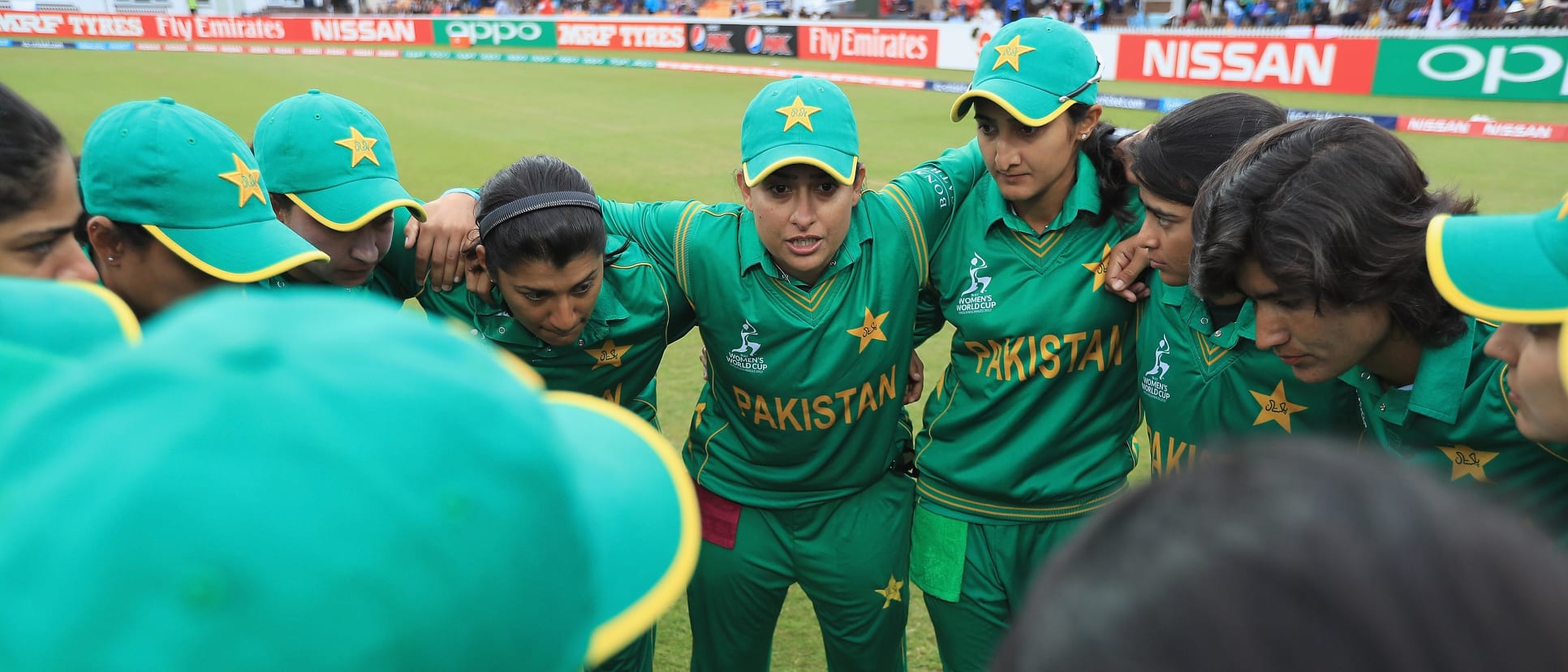“When all of us started, there was no cricket, no women’s cricket”

WWC17 marks 20 years since 11 pioneering Pakistani women first took the field in a One-Day International.
That the match took place at all was an extraordinary achievement. When in 1996 the sisters Shaiza and Sharmeen Khan had first mooted the concept of Pakistani women playing organised cricket, it sparked protests and death threats.
Undeterred, just a year later, Shaiza was leading out a team against New Zealand at Christchurch. Her team may have endured a heavy loss on the field that day. But victory had already been assured.
Two decades on, Pakistan Women has been accepted into an exuberantly evolving cricketing culture.
Captain Sana Mir has been playing for Pakistan Women for 12 years, during which she has witnessed, and helped to bring about, remarkable changes. As a young woman coming through, she recalls people asking why a girl is playing cricket. “When all of us started, there was no cricket, no women’s cricket. But in the last five or six years,” she says, “I’ve seen a massive change in the perception, and I’ve seen a massive change in the number of girls participating on the streets and in the grounds.”
A tangible togetherness and shared energy fuses the women’s team to their male counterparts. Mir can sense the transformative effect of the “boys” win on a culture starved of international cricket in their homeland. “It’s a morale booster for all Pakistanis,” she says. “We have been struggling with forgetting international cricket back home, we have been struggling with performing on this kind of a big stage and winning the final of the Champions Trophy is a huge morale booster for the whole nation. We’re all very proud of the way the boys played.”
“We got a lot of messages off the men’s team and they are just saying that now it’s your turn, you have to do it,” adds middle-order batter Nain Abidi, and the connection is spreading outwards. “The whole nation is backing us up and they are following us, a lot of people are now aware of women’s cricket, following us on social media and backing us.”
No player better epitomises the sense of fun at the heart of this team than their No. 3 batter Javeria Khan. “I don’t believe in tough games, cricket is only a game of bat and ball, and we don’t see who is playing against us. I have a bat in my hand, whatever the ball is coming I have to play. Imran Khan says 90 per cent of the game is here,” she says, pointing to her temple and smiling. “If you win from here, then you win the battle.”
These women and their pioneering forebears have had to overcome deep challenges for their right to express themselves on the cricket field. Javeria recalls as a young girl being forbidden from playing “on the roads with the boys, because the culture was quite different”. Mir smiles at the memory of playing on a pitch so small that there was only side to play on, “so sometimes we would just play on the offside and sometimes just on the legvside!”
Today they hope to use this tournament to continue their evolvement as an international force. They may not be among the favourites to triumph at Lord’s on June 23, but they are learning all the time.
“On our day we can do anything,” Abida says. “We are an unpredictable team like the men’s. I want to make the most of the tournament, and to make it one of the best memories of my life.”